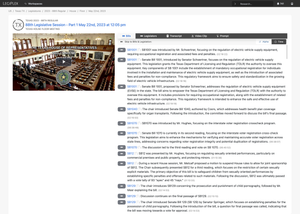Agentic AI refers to artificial intelligence systems designed to operate autonomously, capable of initiating actions, setting goals, making decisions, and executing tasks independently without continuous human oversight. Unlike traditional AI models, which primarily react to user prompts or commands, agentic AI exhibits proactive behavior, driven by internal goals or motivations.
Key Characteristics of Agentic AI:
- Autonomy:
Agentic AIs operate independently, making decisions based on their understanding of tasks, context, and available resources. - Goal-Orientation:
They are explicitly designed to pursue specific objectives or goals, often utilizing internal planning mechanisms to achieve these aims. - Adaptivity:
Agentic systems adapt their strategies based on environmental changes, feedback, or new information, allowing them to handle dynamic and unpredictable situations. - Proactivity:
These systems initiate tasks or decisions rather than merely responding passively to user inputs. - Learning and Improvement:
Agentic AIs often incorporate continuous learning, improving performance over time through reinforcement learning, self-evaluation, or iterative experimentation. - Reasoning and Planning:
They utilize advanced reasoning capabilities to plan sequences of actions or anticipate outcomes, enabling more complex and sophisticated problem-solving.
Examples of Agentic AI Systems:
- AutoGPT & BabyAGI: Autonomous agents that leverage language models like GPT-4 to generate and execute tasks autonomously, breaking down complex goals into smaller sub-tasks.
- Personal Assistants: Advanced assistants capable of independently scheduling meetings, managing communications, and executing workflows without explicit user instructions for each step.
- Autonomous Robotics: Robots capable of independent navigation, object manipulation, or problem-solving in dynamic environments without human guidance.
- AI-powered financial agents: Systems autonomously managing investments, trades, and risk assessments based on predefined goals and adapting strategies as market conditions change.
Potential Benefits and Risks:
- Benefits:
- Significant reduction in human workload and oversight.
- Increased efficiency and productivity through autonomous problem-solving.
- Enhanced adaptability to unforeseen scenarios.
- Risks:
- Potential loss of control or oversight if agentic systems behave unpredictably.
- Ethical and safety concerns arising from autonomous decision-making without clear transparency or accountability.
- Risk of alignment issues—where the agent’s goals diverge unintentionally from human objectives.
Key Challenges in Agentic AI Development:
- Ensuring safety and alignment with human goals and values.
- Developing robust methods to monitor and intervene when necessary.
- Creating transparency mechanisms for decision-making processes.
- Addressing legal and ethical implications around responsibility and accountability.
Future Outlook:
Agentic AI is poised to significantly shape the future of technology, business, and society, presenting both powerful opportunities and critical challenges. Careful research, development, and governance frameworks will be essential to harness the benefits while managing potential risks.


